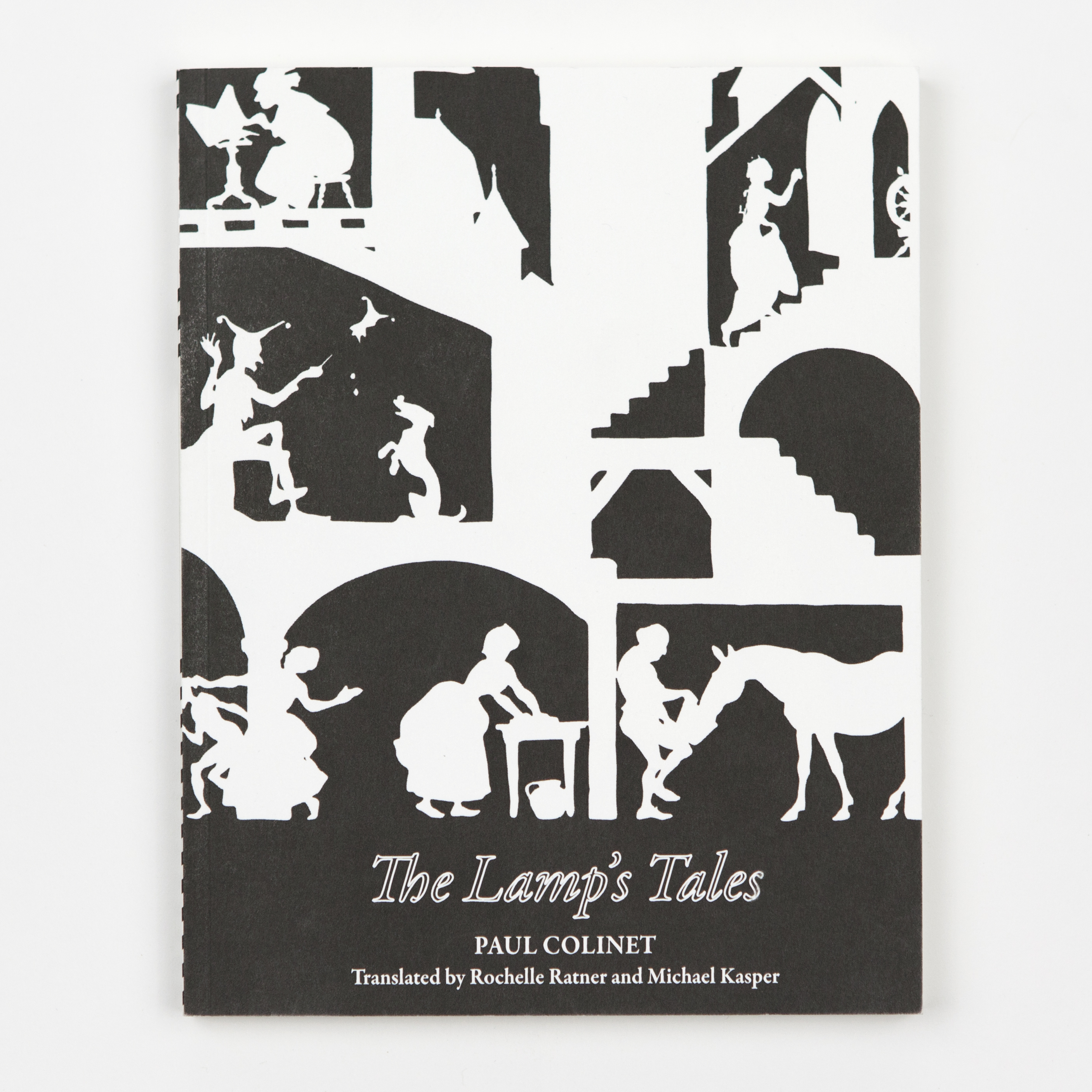
Paul Colinet, The Lamp’s Tales, Trans. by Rochelle Ratner and Michael Kasper, Pleasure Editions, 2019.
excerpts
The poet Paul Colinet (1898–1957) was a primary figure in the Belgian Surrealist group, one of the many productive offshoots of the Paris Surrealists formed in the early part of the 20th century. While remaining allied to the group in Paris, the Belgian Surrealists developed an autonomous style and a concern all their own, and Colinet was one of their shining stars. His poems—rich with the enchanted atmosphere of the folk parable and fairy tale, as well as a generous helping of Rimbaud and the Comte de Lautréamont—are imbued with a dream-like aura, rife with wordplay and contradiction, and suffused with a playful sense of the fantastic.
Experimental in both language and narrative, Colinet’s works are a treasure trove, and wholly deserving of a spot beside those of other masters of the French prose-poem like Max Jacob, Pierre Reverdy, and Henri Michaux. But despite having been first translated by Paul Bowles in Charles Henri Ford and Parker Tyler’s View magazine in 1946, much of Colinet’s work has still never been rendered in English. The Lamp’s Tales, a decades-spanning set of translations by Rochelle Ratner and Michael Kasper, is a small corrective to this oversight, and an estimable introduction to the poet’s fanciful and daring world.
NonsenseSonatas and Headlong Lyricism: Interview with Michael Kasper
The Bike
The bike is a health device for external use that's mainly meant to cure walking.
The packaging for this device is based on the properties of the circle and the lever. Its vital parts are as follows: the trouser fly, on which users rest their hands; the goblets, on which the feet are placed; the two gazelles and the windmill, which constitute the device's propulsive system; the telephone, by means of which the equipment breaks in three; the geezer or godmother, who trots non-stop from the rear gazelle to the windmill; the scaffolding, which connects the trouser fly to the two gazelles; finally, the cloakroom, on which users rely for their foundation.
Before employing the device, users should take care to confine the two gazelles with help from the piggy bank, a kind of narrow corridor with compressed air. They should make sure too that the feet press on the goblets in turn. One or two tranquilizers enable the trouser fly to temper the gazelles' enthusiasm, if necessary. The device works on solid ground.
Children generally use a bike with three gazelles. When a fourth is added, and the trouser fly's pulled up, one need only add a din to make a car of it. In such a case, the cloakroom becomes collective and serves to support several foundations.
--Translated by Michael Kasper
The bike is a health device for external use that's mainly meant to cure walking.
The packaging for this device is based on the properties of the circle and the lever. Its vital parts are as follows: the trouser fly, on which users rest their hands; the goblets, on which the feet are placed; the two gazelles and the windmill, which constitute the device's propulsive system; the telephone, by means of which the equipment breaks in three; the geezer or godmother, who trots non-stop from the rear gazelle to the windmill; the scaffolding, which connects the trouser fly to the two gazelles; finally, the cloakroom, on which users rely for their foundation.
Before employing the device, users should take care to confine the two gazelles with help from the piggy bank, a kind of narrow corridor with compressed air. They should make sure too that the feet press on the goblets in turn. One or two tranquilizers enable the trouser fly to temper the gazelles' enthusiasm, if necessary. The device works on solid ground.
Children generally use a bike with three gazelles. When a fourth is added, and the trouser fly's pulled up, one need only add a din to make a car of it. In such a case, the cloakroom becomes collective and serves to support several foundations.
--Translated by Michael Kasper
On "The Bike": Paul Colinet (1898-1957) was a Belgian Surrealist writer, of delightful prose poems, mostly. Like other authors in that distinctive grouplet, Colinet's work was little published in his lifetime and outside Belgium he's still little known. Paul Bowles translated a few of Colinet's pieces into English in the 1940s; Rochelle Ratner (late New York poet and editor of the American Book Review) did a bunch more at Bob Heman's request for a special issue of his little magazine Clown War in the 1970s. To Ratner's forty or so renderings, I've now added forty of my own—based on the collected edition of Colinet's works, published a decade after the Clown War issue—to make up Pleasure Editions' The Lamp's Tales and Other Short Prose.
Colinet, who for decades commuted by bike to and from his day job as a civic functionary in a suburb of Brussels, wrote prose poems full of whimsy and wordplay. The seeming discrepancy between life and art was typical of the Belgian Surrealists: Paul Nougé was employed as a biochemist, Louis Scutenaire was a lawyer, and the painter Magritte always cultivated that bourgeois look: suit, tie, and bowler hat. They invented normcore.
In "The Bike," which is part of a sequence of short prose entitled "Friday's Backpack," Colinet employed the simple but effective gimmick of substituting unexpected words, a strategy he used in other poems too, as a way of fulfilling one of the central intentions of Belgian Surrealism: to create 'les objets bouleversants' (surprising, disruptive objects). - Michael Kasper
Paul Colinet: Selected Prose Poems
First published by Clown War, 1975.

No comments:
Post a Comment
Note: Only a member of this blog may post a comment.